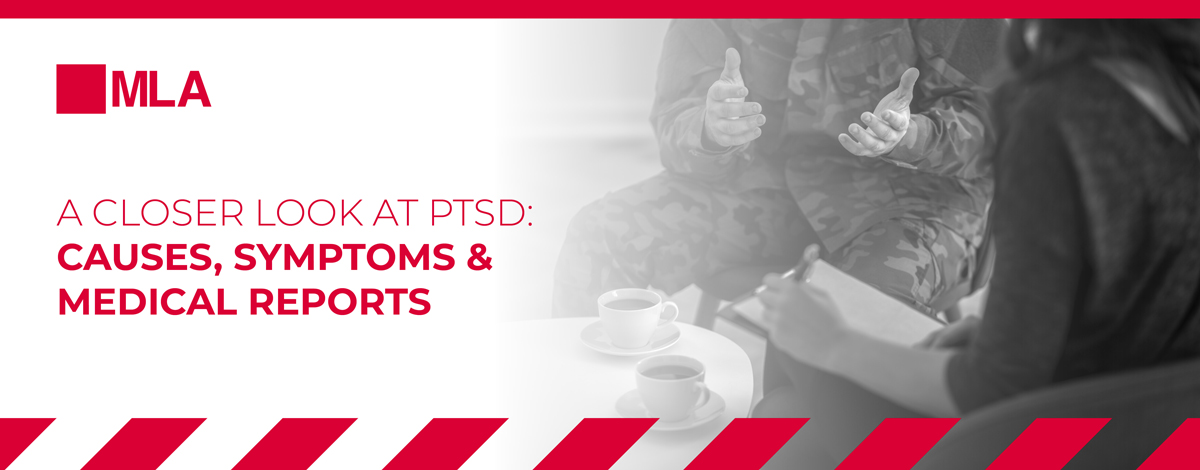This month, MLA will be attending the APIL Military Claims Conference as proud sponsors.
The conference will cover a range of military claims subjects, including Non-Freezing Cold Injuries, causation in psychiatric injury, claims for harassment and much more.
In support of the conference, we’re taking a deeper look into PTSD (Post-Traumatic Stress Disorder), the symptoms associated with the condition and how our experts can identify if an individual is suffering from it.
What is PTSD and what are the causes?
PTSD is an anxiety disorder caused by very stressful, frightening or distressing events; these can include motor vehicle accidents, sexual assault, terrorist attacks, natural disasters and many other alarming events. Following a traumatic experience like the ones listed, an individual may develop changes in their thoughts, emotions and behaviours, which can occur weeks, months or even years after the trauma has taken place. This disorder is particularly common in military personnel as a result of sustained or regular exposure to the stressful and violent situations they encounter.
What are the symptoms of PTSD?
Each person’s experience of PTSD is different, but the most common signs and symptoms of PTSD are:
- Reliving aspects of what happened (vivid flashbacks, intrusive thoughts or images, nightmares, intense distress at reminders of the trauma and physical sensations such as pain, sweating, nausea or trembling)
- Alertness or feeling on edge (panicking when reminded of the trauma, being easily upset or angry, extreme alertness, disturbed sleep, aggressive behaviour and self-destructive behaviour or recklessness)
- Avoiding feelings or memories (feeling like you have to keep busy, avoiding anything that reminds you of the trauma, being unable to remember details of what happened, feeling emotionally numb or cut off from your feelings)
- Difficult beliefs or feelings (feeling like you can’t trust anyone, feeling like nowhere is safe, feeling like nobody understands, blaming yourself for what happened, overwhelming feelings of anger, sadness, guilt or shame)
Sufferers of PTSD may also find they have difficulty with everyday tasks, including holding down a job, maintaining friendships or relationships, remembering things and making decisions, reduced sex drive and struggling to cope with change.
Many individuals find that their symptoms disappear within a few weeks. Those who experience symptoms for longer than a month may then be diagnosed with PTSD by a doctor.
PTSD in the Military
Once deployed, soldiers are faced with violent, alarming scenarios every day, often resulting in a variety of mental health and wellbeing issues.
According to an article published by The Guardian in 2018*, there has been an increase in military personnel developing PTSD. ‘The overall rate of probable PTSD among current and ex-serving military personnel was 6% in 2014-16, compared with 4% in 2004-06.’
To help military personnel deal with the situations they will face, stress management training is provided before, during and after operational deployments, and consultant psychiatrists are available by phone 24/7. However, this does not always prevent the development of PTSD.
PTSD Medical Reports at MLA
At MLA, we offer a comprehensive Military Claims Medical Reporting service, covering everything from Non-Freezing Cold Injury and Compartment Syndrome to Hearing Loss and PTSD. Backed by a nationwide panel of medical experts, our dedicated Case Handlers are well-versed in the complexities of these particular kinds of claims and will make sure your client feels completely at ease when using our services.
To learn more about our Military Claims service, please click here.

